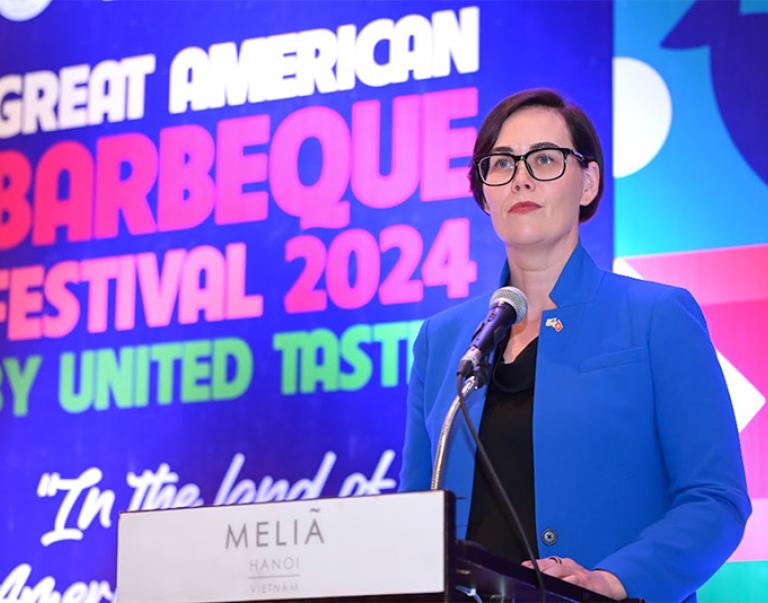Loans and Grants

USDA Loans
Q: I am concerned about Farm Service Agency farm loans. How will direct and guaranteed loans be impacted by COVID-19? What about the loan-making process?
A: Producers can continue to apply for farm loans and get their current loans serviced. Farm loans are critical for annual operating and family living expenses, emergency needs, and cash flow in challenging times like now.
USDA's Farm Service Agency is relaxing the loan-making process and adding flexibilities for servicing direct and guaranteed loans to provide credit to producers in need. More information is available on farmers.gov/coronavirus.
Q: I have a USDA Rural Development loan or grant. Am I an essential worker? Can I continue to implement USDA funding during stay-at-home orders from my state or local government?
A: USDA does not determine whether or not our customers are essential workers. Customers, please contact your local or state government for more information.
National Institute of Food and Agriculture Grants
Q: Are NIFA awards covered under OMB’s M-20-17, “Administrative Relief for Recipients and Applicants of Federal Financial Assistance Directly Impacted by the Novel Coronavirus (COVID-19) due to Loss of Operations?”
A: Yes, please visit NIFA’s Coronavirus web page www.nifa.usda.gov/coronavirus for guidance to the OMB memo, which provides administrative relief to recipients and applicants affected by the loss of operational capacity and increased costs due to the COVID-19 crisis. Additional questions regarding administrative relief provisions should be directed to USDA NIFA’s Awards Management Division at awards@usda.gov.
Q: What are my options if the COVID-19 emergency does not allow me to complete my NIFA-funded project?
A: The grant project directors can contact the NIFA National Program Leader assigned to the project during the last year of the project to discuss various options. This includes adjusting the project scope, giving a No-Cost Extension, and providing supplemental funding for completing the project.
Q: My organization is under a shelter-in-place order due to COVID-19. My project cannot perform research during this time. If the project cannot be completed in the original duration or budget, what are my options?
A: If a recipient faces challenges to meet the award program objectives, they should contact the NIFA National Program Leader once the memo expires or in the final year of the award, whichever is first. Besides administrative options, supplemental funding requests may be considered depending on the justification. To discuss any concerns related to salaries, stipends, and benefit rates and staffing levels, anticipated shortfalls or other administrative options, which may include No-Cost Extensions and change in scope, please contact NIFA at awards@usda.gov to consult with a grants specialist about the organization’s specific circumstances.
Q: How do I request a No-Cost Extension?
A: For competitive grants, please check your award Terms and Conditions for information on how to request a No-Cost Extension (NCE). NIFA is still evaluating the options for capacity grants.
Q: Who do I contact for questions about my grant?
A: Please contact the National Program Leader listed as contact for your program. For questions about awards, please contact NIFA at awards@usda.gov to consult with a grant.
Paycheck Protection Program
On March 27th, Congress passed the Coronavirus Aid, Relief, and Economic Security (CARES) Act. This package appropriated $349 billion for the Paycheck Protection Program (PPP). The PPP is a guaranteed loan program administered by the Small Business Administration (SBA). The purpose of the program is to support small businesses and help support their payroll during the coronavirus situation.
Q: Are agricultural producers, farmers, and ranchers eligible for the Small Business Administration’s Paycheck Protection Program (PPP)?
A: Agricultural producers, farmers, and ranchers with 500 or fewer employees whose principal place of residence is in the United States are eligible.
Farms are eligible if: (i) the farm has 500 or less employees, OR (ii) it fits within the revenue-based sized standard, which is on average annual receipts of $1M.
Additionally, farms can qualify for PPP if it meets SBA’s “alternative size standard.” The “alternative size standard” is currently: (1) a maximum net worth of the business not more than $15 million, AND (2) the average net income Federal income taxes of the business for the two full fiscal years before the date of the application be not more than $5 million.
Q: Are agricultural and other forms of cooperatives eligible for PPP?
A: As long as other eligibility requirements are met, small agricultural cooperatives may receive PPP loans. Other forms of cooperatives may be eligible provided they comply with all other Loan Program Requirements (as defined in 13 CFR 120.10).
Q: Do H-2A or H-2B workers on my payroll count towards my eligibility and total possible loan amount?
A: Only employees with a principal place of residence in the U.S. count toward eligibility and calculation of the PPP loan amount.
Q: How do sole proprietor farmers provide accurate documentation regarding payroll, when they may not take a traditional salary?
A: SBA requires sole proprietors, independent contractors, and other eligible self-employed individuals to provide documentation to its lender that the business was in operation as of February 15, 2020. This documentation may include payroll processor records, payroll tax filings, or Form 1099-MISC, or income and expenses from a sole proprietorship. For borrowers that do not have any such documentation, the borrower must provide other supporting documentation to its lender, such as bank records, sufficient to demonstrate the qualifying payroll amount.
Documentation options for payroll tax filings include the following:
IRS Form 941 (quarterly wages); IRS Form 944 (calendar year wages); State income, payroll and unemployment insurance filings; QuickBooks; bank repository accounts; and/or internally generated profit and loss statements. However:
- Nonprofit organizations must include IRS Form 990;
- Sole proprietors must include IRS Form 1040 Schedule C;
- Any entity that filed IRS Form 1099-MISC must include this form;
- Seasonal employers must document the period beginning February 15, 2019 through June 30, 2019
More extensive FAQs can be found at the Treasury Department’s CARES Act website (PDF, 50 KB).



